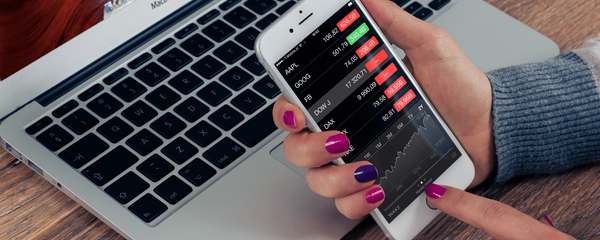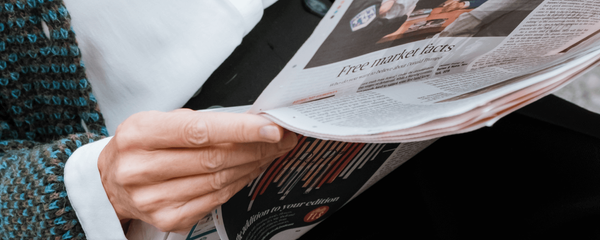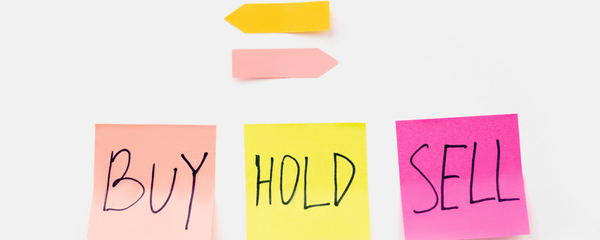The news has been pretty scary lately. The disease caused by coronavirus, COVID-19, has become a global pandemic infecting hundreds of thousands of people worldwide. And although most people are thinking about their health and the health of their families, it’s important to take a moment to think about how COVID-19 could impact your financial health.
Plan ahead!
Most people are being asked to enforce social distancing, which means keeping at least 1.5 meters of separation between yourself and other people who might be infected. Some people who know they might be at risk have been asked to self-quarantine, which means staying at home for around two weeks.
Self-quarantining could mean a reduction in your income — especially if you don’t have paid time off at work or have been asked to take unpaid leave. If you had planned for this loss of income by previously setting aside savings for a rainy day then you would be better off than most people.
This is exactly why having some emergency cash savings is so important to your financial health. Ideally you should have 3 to 6 times your monthly salary in a high interest cash account that you can access immediately.
"If you don’t have an emergency fund, now is the time to start one."
On a positive note, during this time of self-isolation you and your family are likely spending less (no movies or nights out) so now is the perfect time to set up an emergency fund to protect yourself against any future knocks.
Don't panic and sell your investments
Another way the virus might affect your financial health is through your investments due to its overall effect on the global economy. You may have already seen how stock markets around the world have tumbled over the last few weeks. This is largely because fewer people are traveling or going to stores and restaurants, as well as the disruptions caused by people not being able to work, which has a ripple effect across the economy. Investors are not certain when it will end so the stock markets have been incredibly volatile.
As it stands it’s very difficult to predict what the end result will be, because prior to the virus most global economies were in good shape, so we could see a quick recovery like we’ve seen in the past or not - nobody really knows for sure.
Nevertheless, the important thing is not to panic. The worst thing to do is sell out when your investments are at a low-point because then you are realising your losses. At this stage the best thing to do is to try and not check your investment balance everyday and just ride it out. Because as you can see, in response to past viruses (including SARS, Zika and Ebola) the economy has almost always bounced back within 12 months.
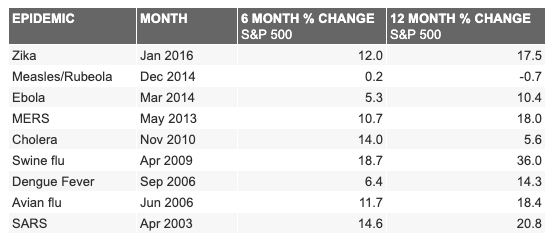
A fair criticism of this analysis is that this time is different - one should never compare apples and oranges together. Fair enough. Yet it's nigh impossible to find an exact match of events through time. That said, if we look at previous comebacks after a week with a 8-9% drop in the market, we again see that in only 13% of instances where the market dropped 8-9% in a single week over the past century did the market not bounce within 5 years. Again the data would suggest hanging in the (if you can afford to wait) is the best course of action.
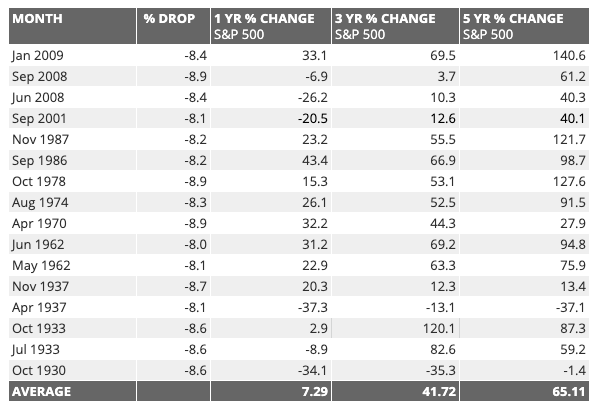
Some concrete advice
Just like the World Health Organisation has advice for what to do during this COVID-19 pandemic, here is some practical advice you can take onboard to ensure your financial health is not overly affected during this turbulent time.
- Know your limits: Whenever your income may be affected it’s important to know what your financial limits are in case you have to access money in an emergency. So check your bank account and savings account balances. Check your credit card balances and each card’s limit and interest rate. So that if you need to use a credit card, you can start by using the one with the lowest interest rate.
- Don’t overspend: You don’t need to clean out your local supermarket. A good guideline to follow is the Center for Disease Control and Prevention’s recommendations and think about what you’d need to have on hand for a couple of weeks (like hand soap, non perishable food, alcohol wipes).
- Embrace the gig economy: Anything that can bring in some extra income at this stage might be worth considering. With platforms like M4Jam you can earn extra income by simply looking for nearby opportunities that you can do using your mobile phone. But you might also look into things like transcribing, proofreading or user testing. There are many gig platforms out there, like Upwork, Fiverr, Behance, Taskrabbit, Freelancer and Gigster, that can enable you to earn money from home.
- Upskill yourself: This is a smart use of downtime at home. There are a number of platforms, like Coursera, Udemy, Khan Academy, that can help you pick up something new you’ve been interested in for a while. And while you’re at it, why not update your resume and make sure your LinkedIn profile is up to date, so people can know what you’re up to.
Stay calm and crack on
In turbulent times, it’s good to remind yourself to consistently invest - something we strongly recommend at Franc — instead of trying to guess when to “buy low” and “sell high.” Trust that you’ve set up a solid investment goal and stick to your monthly contributions, because letting your emotions get the better of you can make for terrible investment decisions.
And even though, as President Ramaphosa said in his recent address, this too shall pass, it’s good to check in on your financial health from time to time - think about how you can make yourself financially strong and more resilient to these unexpected shocks in life. Unfortunately money is usually the #1 source of stress, so good financial health can really have a positive impact on your health. So stay calm and wash your hands!


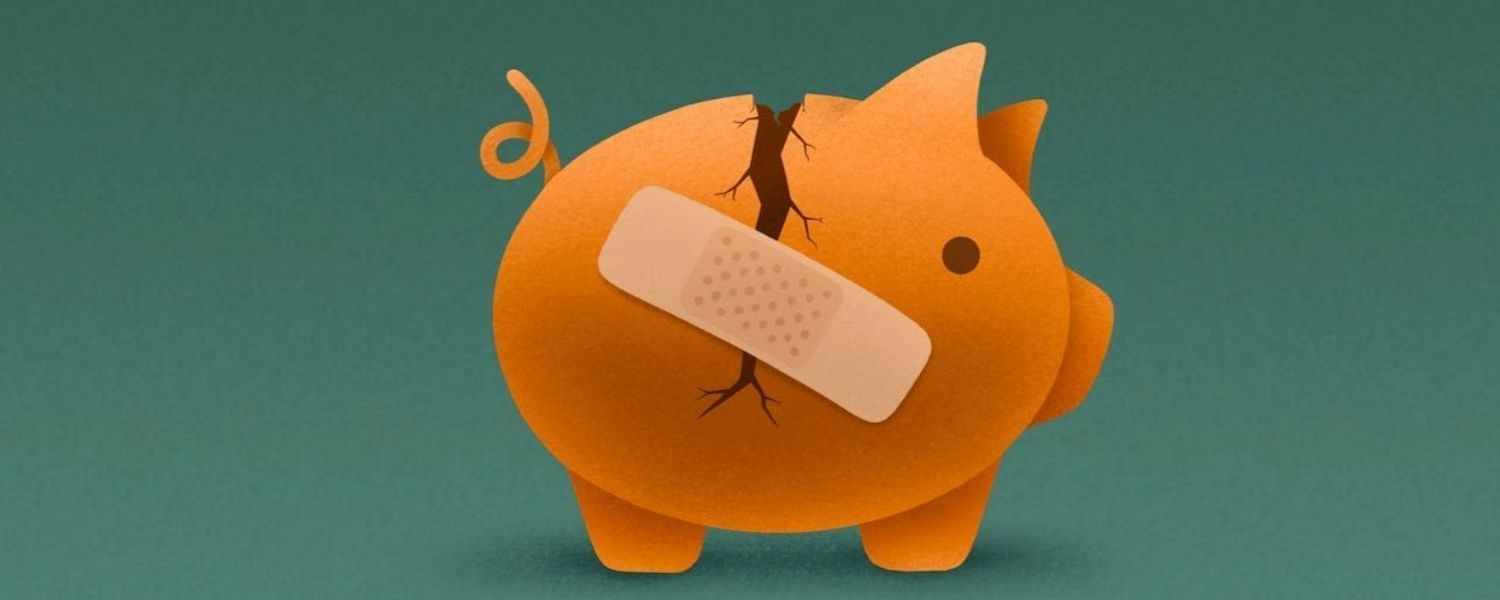

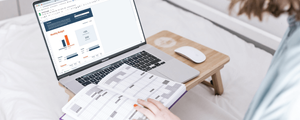


![What's the Level of Financial Literacy in South Africa? [+ financial literacy quiz]](/blog/content/images/size/w600/2023/09/financial-literacy.png)
